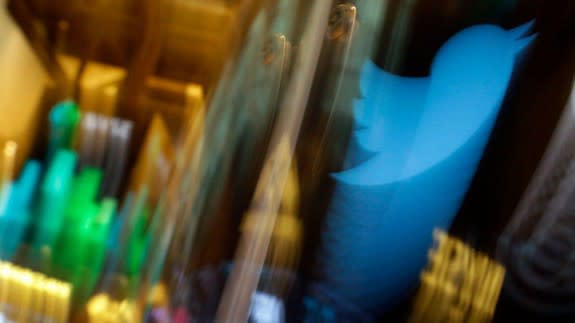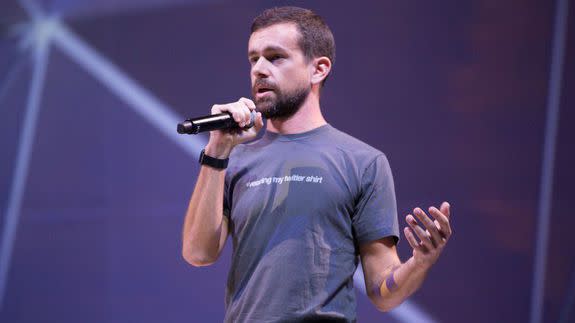Twitter's complicated relationship with developers just got worse

Twitter's relationship with developers is as complicated as ever.
The company caught developers by surprise Wednesday when it announced it was selling its developer platform Fabric to Google, thus offloading the suite of developer tools it once heralded as the "the future of mobile software."
SEE ALSO: Twitter's Periscope launches 360 video
The news comes a little more than a year after CEO Jack Dorsey, in one of his first public appearances after being reinstated as Twitter's top exec, stood on stage at the company's developer conference and promised to "reset" developer relations.
"Somewhere along the line, our relationship with developers got a little bit complicated, a little bit confusing, a little bit unpredictable," Dorsey told the room. "We want to come to you today first and foremost to apologize for our confusion. We want to reset our relationship and we want to make sure that we are learning, we are listening and that we are rebooting."

Image: twitter
While Twitter is not giving up on developers entirely — it will continue to maintain Twitter Kit, monetization platform MoPub and a handful of other developer products and support meet-ups — selling off what was once its flagship developer offering sends mixed signals to developers with whom Twitter has had a historically complicated relationship with.
“I didn't know anything about this which is strange because I am a Twitter developer community manager,” said Ryan Bell, head of studio at VRScout who also runs a Los Angeles-based Twitter community group. He had a call scheduled with Twitter for later in the day.
Reboot or remove?
Despite embracing developers early on in its history, the company gained a reputation as unfriendly to developers in later years when it began restricting how developers could use its API in their apps. The company also publicly wrestled with developers like Politwoops and Twitpic.
Unlike in previous moves, Twitter is not clamping down on restrictions to its API. By selling to Google, it is shifting away daily responsibility and monetary resources to Alphabet. Customers of Fabric won't need to make any changes, other than read a new terms of use.
Excited to focus my attention on supporting our Public API - in continuing to support our global @TwitterDev community.
— Kelly McMichael ✈️ (@kellyshalk) January 18, 2017
"When we met the team at Google we quickly realized that our missions are the same - helping mobile teams build better apps, understand their users, and grow their businesses," Rich Paret, vice president of engineering and general manager of Fabric, wrote in a blog post.
Google is not a surprising partner. Twitter and Google is already integrated with search. It has long been rumored that Google could acquire Twitter. Google, quite unlike Twitter, has a strong and stable relationship with developers.
Fabric, Crashlytics & Digits are great tools & Google will be a good home, but this essentially means Twitter has no developer story.
— Anil Dash (@anildash) January 18, 2017
Dorsey listed in the beginning of 2016 that developer relations was one of his top priorities that year, alongside refining the core product, live-streaming video, creators, safety and developers.
Over those 12 months, Twitter put a heavy emphasis on three of the five. Addressing abuse is number one, as Twitter CMO Leslie Berland told Mashable earlier this month. The company is prioritizing live video by executing streaming deals (like Donald Trump's inauguration with PBS NewsHour) and investing in integrating its user-generated video app Periscope with the core product. Creators got thrown to the wayside by Twitter unexpectedly cutting Vine.
Focus isn't necessary a bad thing. Twitter told investors it is paving a path toward profitability this year. Offloading Fabric cuts costs, brings in some revenue, and reprioritizes resources. The entire Fabric team — the size of which Twitter declined to disclose — was invited to join Google.
Twitter and Google declined to disclose the terms of the deal.
6/ As this @fabric chapter closes, and another begins, it is time I step back. @richparet has my full trust to lead Fabric going forward!
— Jeff Seibert (@jeffseibert) January 18, 2017
Not everyone is moving over. Jeff Seibert, a senior director of product who joined via Twitter's acquisition of Crashlytics and led the developer platform, announced he will step back from the role.
New year, new priorities
2016 already wasn't Twitter's closest relationship with developers. Twitter cancelled its annual developers conference that typically takes place in the fall without much fanfare or reason.
Twitter has been off-lifting work in developer relations by tapping advocates. In November, Twitter announced Developer Communities, an initiative to bring more developers together. Those communities currently host 4,868 developers, a source tells Mashable.
Still, Twitter hasn't changed its reputation of confusing and complicating their relationships with developers. Bell, the Los Angeles-based Twitter community manager, wasn't too worried about the change.
"The show will still go on. People will still develop on Twitter and be connected," Bell said. "I don't get paid to do the Twitter dev meet-ups I like to do it because I get to connect people who do cool stuff."

 Yahoo News
Yahoo News 